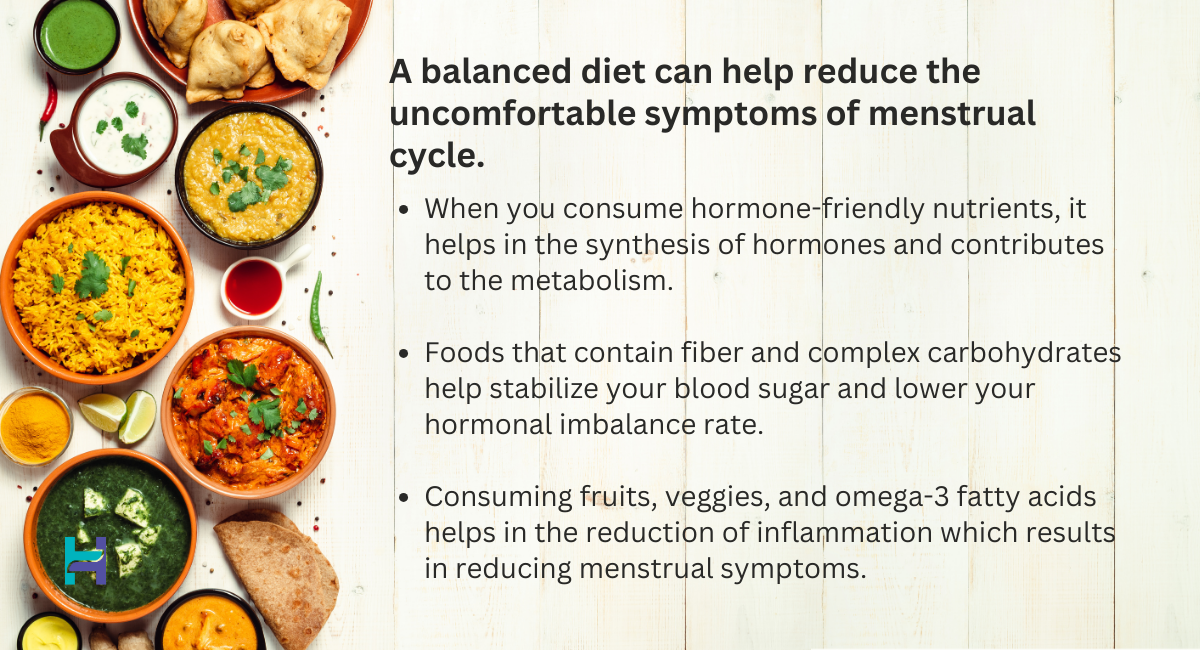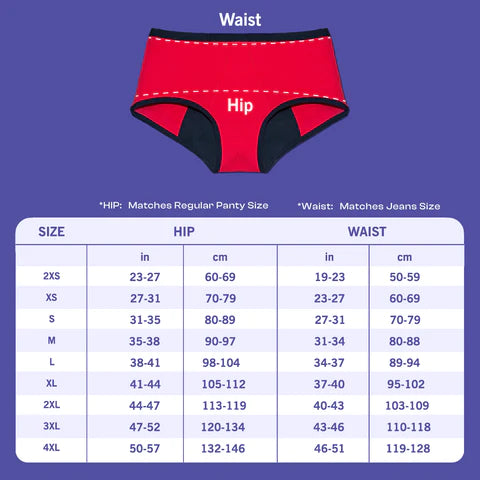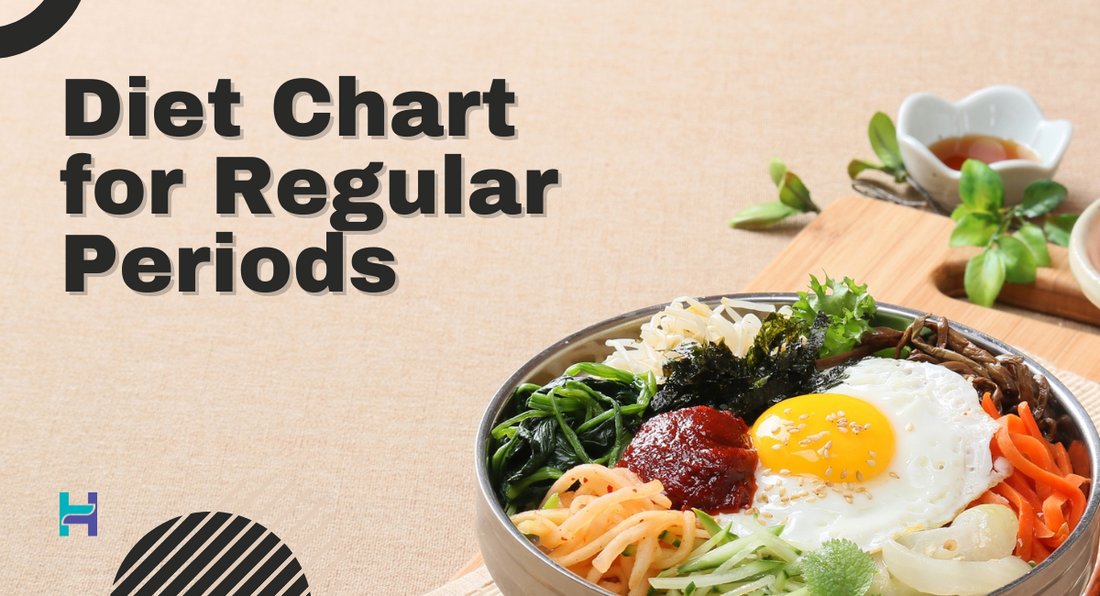“She remembered who she was and the game changed” – Lalah Delia.
The menstrual cycle is often considered a taboo topic in India. Women (especially middle-aged women) in India feel uncharted shame and discomfort talking about their periods (menstruation cycle) resulting in negligence in maintaining a proper diet.
A balanced diet for periods is insanely important for a regulated period cycle. It helps reduce the intolerable pain in your stomach, brightens your distressed mood, and improves a woman’s overall health.
In this article, we’ll discuss the importance of diet in Menstrual Health, which yummy foods to include, Nutritional Impact, meal planning tips, and a list of dos and don’ts for your safety.
What more? We’ve included a FAQ section for your possible questions.
Let’s jump in quickly!
Why a proper diet is essential for Menstrual health?
There’s more story to periods than just bleeding for one week per month (more or less).
It indicates a woman’s mental, spiritual, and bodily well-being. Here’s how:
- When you follow a balanced diet chart combining essential nutrients such as vitamins, healthy minerals, and omega-3 fatty acids – it helps produce hormones and regulates them as well.
- A healthy carbohydrate period diet helps in maintaining blood sugar levels and thus, support your hormonal balance.
- A regulated diet helps to maintain a healthy weight which is important for hormonal stability. Too much body fat (especially in areas like the abdomen) can boost insulin hormones resulting in an irregular period cycle.
- When you add fermented food rich in fiber, it helps to improve your gut health and circles down to support hormonal balance.
- Inflammation can distort your hormone production and stability. Adding fruits, veggies, and whole grain meals to your diet chart can help to reduce it.

15 Foods to Include in your Indian diet for period?
Choosing the right food is crucial because many foods can lessen uncomfortable symptoms (abdominal pain, high headaches, fatigue, bloating, mood swings, etc.) while some can worsen things for you.
Here are 15 foods to reduce those symptoms and maintain a balanced period cycle:
-
Fruits – Eat fruits like watermelon and cucumber to stay hydrated. Add sweet fruits like bananas and Orange to help with your sugar craving. Consuming refined sugar crashes your sugar levels.
-
Vegetables (leafy green) – Vegies such as Kale and spinach help increase your iron and magnesium levels after a heavy menstrual flow.
-
Ginger – Ginger mixed in your tea can help improve periods and inflammatory symptoms (not more than 4 grams/day is safe). Nonetheless, studies found that it helps sober you from nausea and vomiting during pregnancy.
- Fish – Eat fish because it contains iron, protein, and omega-3 acids (it's tasty too). Studies showed that Omega-3 can soothe period pain.
-
Chicken – You surely need protein to stay healthy during periods – chicken is a great source of it.
-
Turmeric – A study conducted in 2015 showed that turmeric (curcumin) can help women by reducing period pain.
-
Dark chocolate – Studies found magnesium can reduce the symptoms of the period cycle. Dark chocolate is rich in magnesium and iron – it helps you immensely.
-
Flaxseed oil – Try adding Flaxseed oil to your diet chart. According to the study, it is beneficial for constipation (one of the symptoms of menstruation).
-
Nuts – Nuts are a great source of protein, Omega-3 fatty acids, magnesium, and vitamins. You should add them to your diet.
-
Quinoa – Eating Quinoa can help you stay energic and full in times like the menstrual cycle because it contains iron, magnesium, and protein.
-
Yogurt – Yogurt can help you prevent yeast infections during the period cycle. It also contains magnesium and important nutrients.
-
Lentils and beans – for vegan women, Lentils and beans are a great replacement for meant because they contain protein and iron.
-
Tofu – Add tofu to your meals for a high source of protein consumption (it’s 100% vegan).
-
Peppermint tea – Just like turmeric tea, Peppermint tea can help reduce period symptoms as in the study of 2016.
- Water – Don’t forget to add a lot of water to your diet chart. A common period symptom is dehydration and headaches, drinking a whole lot helps in reducing those shattering effects.
How does balanced food help in the menstrual cycle?
A balanced diet can help reduce the uncomfortable symptoms of menstrual cycle. Here’s how:
- When you consume hormone-friendly nutrients, it helps in the synthesis of the hormones and contributes to the metabolism which supports a healthy menstrual cycle.
- Foods that contain fiber and complex carbohydrates help stabilize your blood sugar and lower your hormonal imbalance rate.
- Consuming fruits, veggies, and omega-3 fatty acids helps in the reduction of inflammation which results in reducing menstrual symptoms.
- Following a healthy diet chart can boost a woman’s energy levels especially in times like the period cycle and not to mention, it reduces the fatigue symptoms.
Also read: Jeera water benefits for women
Meal planning tips for one week
We’ve cumulated a meal chart for 4 days. This chart can be continued for the whole month for a balanced hormonal balance and to prevent irregular period cycles.
Day 1
- Have a breakfast of leek, bell pepper, and tofu or mushroom eggs. Make sourdough toast blended with avocado. Take a protein bar as a snack.
- For lunch, have grilled chicken, roasted vegetables of various kinds, and a lemon-tahini sauce combined in a green salad. Grab dark chocolate as a snack.
- Have lemon zest over the top of baked salmon with roasted sweet potatoes and asparagus for dinner.
- Dessert? Have Pumpkin seeds, mixed berries, and chocolate collagen peptides added to Greek yogurt.
Day 2
- Have a breakfast of oatmeal mixed with almonds and berries. Grab an Apple with butter made from almonds.
- For lunch, take mixed greens, avocado, tomatoes, and grilled chicken salad. Grab Walnuts and honey combined with Greek yogurt as a snack.
- For dinner, have salmon baked and paired with roasted veggies.
- Dessert? Have Raspberry with dark chocolate.
Day 3
- Have a breakfast of Almonds, cashews, raisins, soy milk, and egg poach. Grab Cantaloupe for a snack.
- For lunch, take Dal, chicken curry, and rice. Grab Chana chat as an evening snack.
- Have Fish (grilled), beetroot, chapati, or peas curry for dinner.
- Dessert? Have Fresh fruits and Greek yogurt.
Day 4
- Have a breakfast of One glass of milk, four cashews, four raisins, and oats. Grab an apple and kiwi for a snack.
- For lunch, take any high-protein vegetable, such as chapati Dal. Take Green tea, chat, and rice puffs as an evening snack.
- Have Lotus stem curry or Chapati mix vegetable curry for dinner.
Dos and Don'ts for a healthy menstrual cycle
Here are a few things you should do:
- Regular exercise
- Hydrate yourself
- Eat dark chocolates
- Eat more protein
- Maintain better hygiene
Here are a few things you shouldn’t do:
- Unprotected sex (for unwanted pregnancy)
- Eating junk food like pizza, pasta etc.
- Drinking coffee
- Using heating pads
- Consumption of Alcohol
- Late night parties
Conclusion
Menstrual health may be greatly impacted by eating a balanced diet rich in nutrient-dense foods including whole grains, fruits, vegetables, omega-3-rich meals, lean meats, herbal teas, and dark chocolate.
These nutrients support general well-being, ease menstruation symptoms, lower inflammation, and balance hormones. When paired with consistent exercise and stress reduction techniques, this food plan can help people get regular and comfortable menstruation periods, which can improve their overall quality of life.
For more details, visit your nearest gynecologist today.
FAQs
1. Why am I not getting my period?
A simple answer could be a hormone imbalance. This can be caused by severe exercise, mental stress, rapid weight loss, or certain reproductive problems.
2. Are there certain foods to stay away from when you're menstruating?
Yes, avoid foods containing saturated fats such as butter, cream, bacon, and potato chips.
3. Does consuming sugar lengthen the period?
Yes, sugar can disrupt your hormones resulting in irregular periods.


